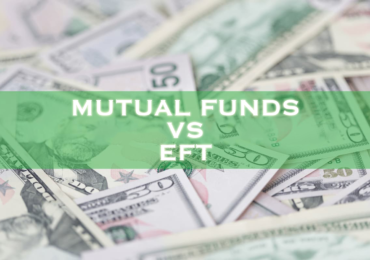Understanding the Difference Between Stocks and Shares
The difference between stocks and shares is somewhat hazy in the financial markets. Generally, both terms are used interchangeably, referring to financial equities, financial securities in particular, denoting ownership in a public company. In the early days, these were called stock certificates, but today, the difference between stocks and shares has more to do with syntax and is derived from the framework in which they are used.
Investors are always advised to expand their portfolios equally between stocks and shares. But what’s the difference between the two types of investments?
If you are new to the market and want to learn the basics of stocks and shares, you have come to the right place. Here, we look at the key difference between stocks and shares on the most fundamental level.
What are Stocks?
Stocks are an equity investment that denotes ownership in a company. In simple terms, owning stocks of a company means you are a (part) business owner. In the United Kingdom, purchasing stocks come with certain rights that may incorporate receiving voting rights at shareholder meetings as well as earning dividends (monthly, quarterly, or annually).
Companies and businesses issue stocks as a way to raise huge amounts of capital. This capital is used by the companies for funding different ventures and projects that ultimately lead to development and create a return for investors. Any business can go from private to public by issuing an initial public offering (IPO). When you invest in a company’s stock, and it makes money over a long period, your stock may increase in value.
What are Shares?
A share is the single smallest value of a stock. Therefore, if you are distributing stock and referring to particular characteristics, the correct term to use is shares. They represent ‘slices’ of ownership in a public corporation.
Your impact as a stockholder entirely depends on how many shares you own. That is, you own one share of a company, and your friend owns two shares of the same company. You and your friend are both part-owners and stockholders of the company; however, your friend owns twice as much of the business as you do. Voting rights and dividends are assigned on a pre-share basis. That is, you have one vote for the board, whereas your friend gets two votes.
Stocks v Shares Example
Let us take an example to illustrate this shareholder and stockholder.
Let’s assume that you have bought the certificates of XYZ Inc. In this case, we will refer to the certificates as shares and not stocks as we can see that you have bought certificates from a ‘particular’ public corporation.
Now, if we say that you own certificates from numerous corporations, we would state them as certificates of stocks and not shares.
This means that we can say the share is a smaller unit of stock.
A share can be issued in three ways, given that it is a particular certificate of a company:
- At a discount – the share is issued below face value
- At premium – the share is issued above face value
- At par value – the share is issued at a meagre value
Moreover, shares can be divided into two types – preferred shares and equity shares. Although equity shareholders have voting rights, they are paid after preferred shareholders and debt holders. Preferred shareholders get paid first (after the debt holders) and also get preferential rights.
So, stocks are considered a generic term since they don’t mean the shares of a specific company.
Let’s get into the detail about stocks and shares:
- When you buy a company’s stock, you are not loaning the company money; in fact, you are acquiring a percentage of possession in that specific corporation. In return for buying stocks in a company, you have a claim on parts of its assets and earnings.
- You are likely to receive dividends on your stock ownership. In addition to that, if the company performs well in the market and its stock price goes up, you can sell the stock for a price higher than what you paid.
- Individuals owning stocks in a corporation can be referred to as shareholders, stakeholders, and stockholders, all of which are correct terms.
- While the term ‘shares’ refers to the units of stock in a corporation, it could also signify other types of investments, such as mutual funds.
Head to Head Comparison Between Stocks and Shares
Basis for Comparison | Stock | Share | |
Meaning | A stock is a larger form of a share – ownership of one or more company | A share is a smaller unit of stock – ownership of only one company | |
Relationship with the owner | When you own the shares of numerous companies, we say that you own the stocks | When you own the shares of a particular company, we say that you own the shares | |
Term | ‘Stock’ is a generic term. When you own stocks, you can’t stipulate them as shares of a specific company | ‘Share’ is a specific term. When you own shares, you can ask about a particular company | |
Denomination | Two different stocks of a public corporation may or may not have equal value | Two different shares of a public corporation can have equal value | |
Possibilities of original issue | No | Yes | |
Paid up value | Stocks can only be fully paid up | Shares can be partly or fully paid up | |
Fractional transfer | Possible | Not possible | |
Definitive number | A Stock doesn’t have such number | A share has a definitive number called a distinctive number | |
Nominal value | There is no nominal value associated with stocks | There is some nominal value associated with the share | |
How much is it preferred | The preference is higher in terms of transfer | The preference is lower in terms of transfer | |
Macro and Micro | Stock can be compared to the finance (industry) | Shares can be compared to the bank (particular financial institution) | |
Example | I invested in stocks (this declaration doesn’t require any further questioning) | I invested in shares (the next question one could ask is in which company, what type of shares, how many shares, etc.) | |
How are Stocks Valued?
The price of a stock is determined by the supply and demand for the stock. Investors determine the stock’s price by choosing to sell or buy the stock at a specific rate. During a trading day, the price of heavily traded stocks changes several times. On the other hand, prices of thinly traded stocks change once a week or so. However, recommendations from stock analysts also impact what investors are eager to pay for the stock. Investors and analysts base their theories about stock prices on several different factors, including historical earnings, perceptions about mergers or acquisitions, historical and current prices of the stock, perceived strength of sector performance, and perceptions about the quality of management.
Buying and Selling Shares
Shares of stock are sold and bought over a stock exchange, which is also known as the stock market. American Stock Exchange (AMEX) and the New York Stock Exchange (NYSE) are two of the most well-known stock exchanges. Public companies list their stocks for sale on the stock market where investors can sell and buy them with the help of a stockbroker or an investment professional. With the advancement in technology, investors can now perform stock transactions with just a click of a button.
How it Works – Sample Transaction
In order to understand how a stock transaction would work, suppose you have £1000, and you want to invest it in XYZ Inc. If the price of XYZ’s stock is listed at £20 per share, you can purchase 50 shares of its stock. If a sudden marketing strategy implementation causes a run on XYZ’s products and the share prices jump to £30 per share, you can earn a hefty £500 profit – 50 shares at £10 per share.
Types of Stocks
Financial analysts and investors have countless ways to classify stocks. Some examples of stocks include large-cap and small-cap stocks, value stocks, growth stocks, blue chips, financial stocks, and tech stocks, among others. You need to understand that these categorisations of stock don’t refer so much to the stocks themselves as the public corporations that have issued them.
A tech stock, for instance, is issued by a corporation in the technology industry, whereas blue chips are issued by large companies having a dominant status in the industry. Most importantly, preferred stock and common stock are not really types of stocks.
Types of Shares
Public corporations issue different types of shares, with the most common being the common shares. Common shares are the basic shares of a corporation. When you see a corporation’s share price quoted in the media, it is the price of one common share.
Preferred shares, on the other hand, is another type of share that functions much like a bond. This is because they come with guaranteed dividends and give investors a priority claim on the assets of the company in the event of the company going out of business. However, investors don’t have any voting rights.
Final Thoughts
Concluding, there is a slight difference between stocks and shares, but to most investors and financial analysts, it doesn’t make a huge impact. However, according to experts, when it comes to an understanding of both entities, it is important to understand shares more than stocks. So, if you are planning to enter the financial market with some investments, we advise you to focus on shares first.
We have tried to cover pretty much everything about stocks and shares here. If you have any queries, feel free to ask us.











